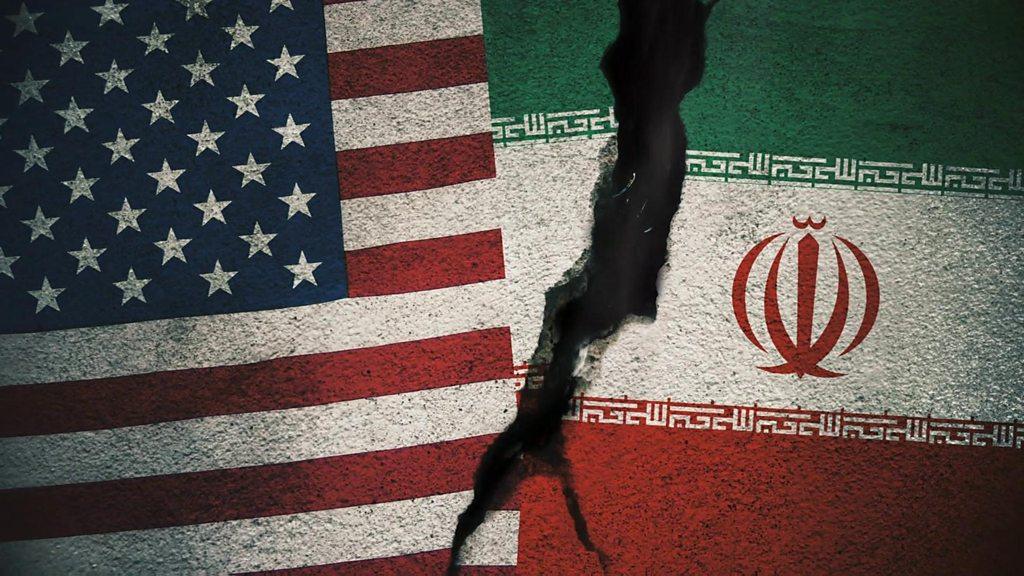Iran sanctions: US moves to isolate 'major' banks
- Published
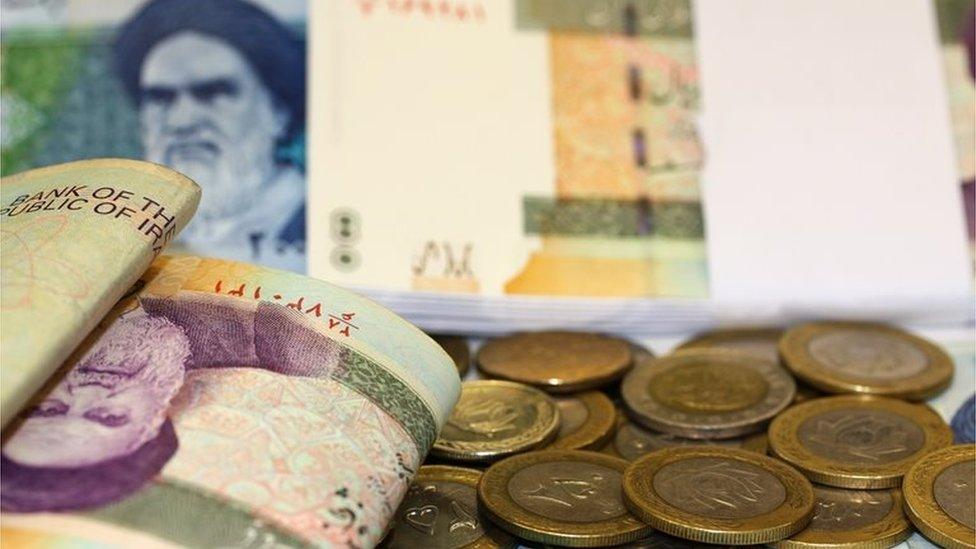
The sanctions will penalise foreign banks trading with Iranian ones
The Trump administration has imposed sanctions on 18 "major" Iranian banks in one of the most extensive such moves by Washington against Tehran in months.
The order will also penalise non-Iranian institutions trading with them, effectively cutting the banks off from the international financial system.
The US says it is seeking to choke off Iran's access to funds to pursue what it regards as aggressive activities.
Iran's UN ambassador accused the US of committing "economic terrorism".
The latest punitive measure comes weeks after the US declared the return - or "snapback" - of UN sanctions on Iran that were lifted under a 2015 international deal over Iran's nuclear programme, accusing Tehran of having breached that agreement.
Other members of the UN Security Council, however, are not in agreement with the US, saying Washington cannot trigger the snapback mechanism because it abandoned the nuclear deal in 2018.
Feeling the squeeze: Iran sanctions explained
This latest US move acts upon a presidential order signed by Donald Trump in January after a missile attack by Iran on US air bases in Iraq.
That attack was in retaliation for the US killing in Iraq of top Iranian commander Gen Qasem Soleimani, who controlled Iran's proxy forces across the Middle East.
The US Treasury did not specify accusations against most of the banks, external but said 16 of the institutions were being sanctioned for what it termed "operating in Iran's financial sector", one for its links to an already sanctioned bank, and another for being a "military-affiliated" bank.
Significantly, the sanctions also target foreign companies that do business with the banks, giving them 45 days to cease such activities or face "secondary sanctions".
Announcing the measures, US Treasury Secretary Steve Mnuchin said the US' "sanctions programmes will continue until Iran stops its support of terrorist activities and ends its nuclear programmes".
Iran nuclear deal - explained in 2 minutes
He said that the latest sanctions would "continue to allow for humanitarian transactions to support the Iranian people", such as in agriculture, food and medicine.
However, observers say foreign banks are likely to be uncomfortable with trading even in these exempted areas because of the risk of being penalised.
Iran has denounced the move by the US, which comes just weeks ahead of the US presidential election.
Its UN ambassador, Majid Takht-Ravanchi, said it was a form of "state terrorism and economic and medical terrorism... carried out through unilateral coercive measures".
- Published22 September 2020
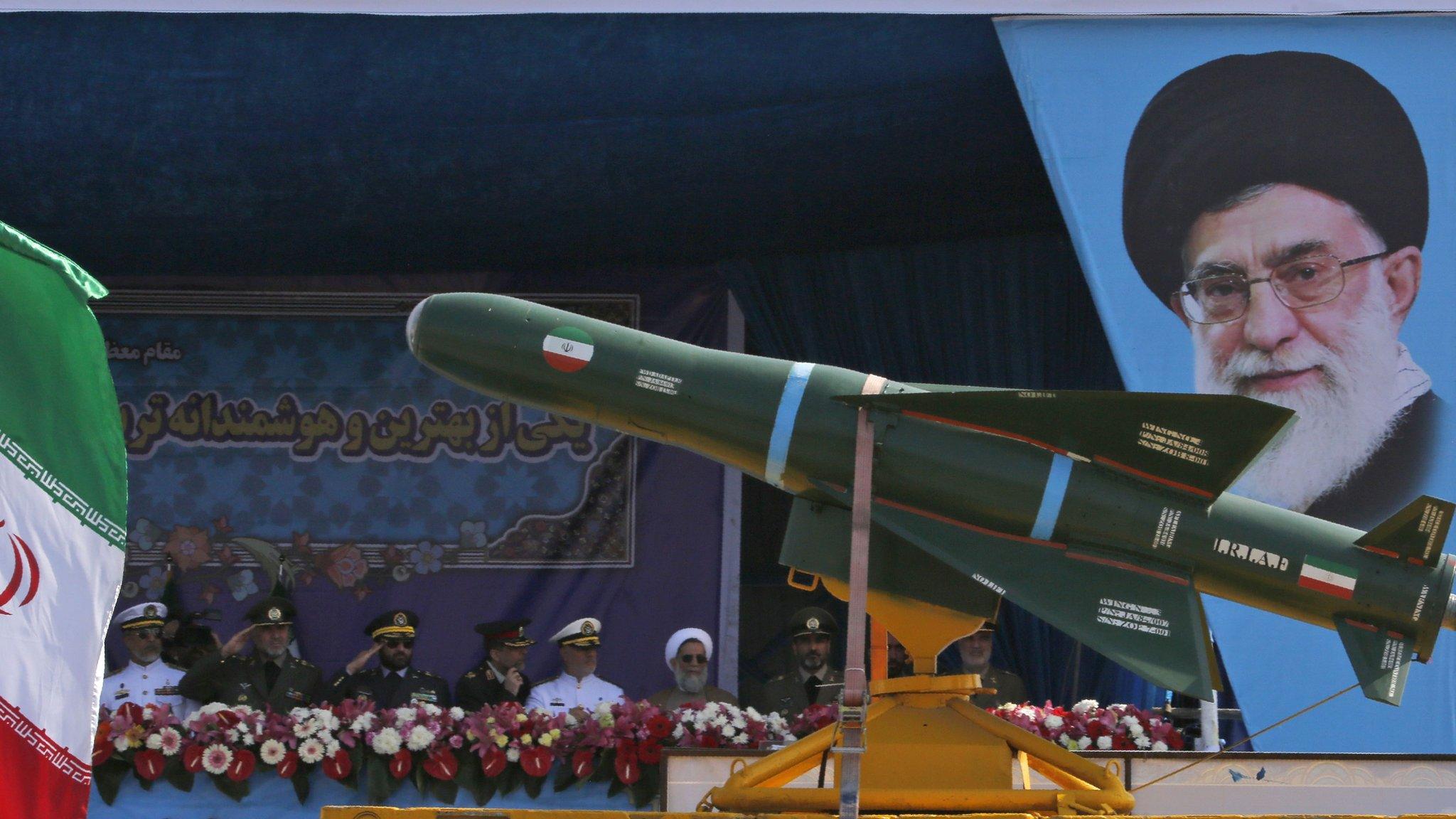
- Published2 September 2020
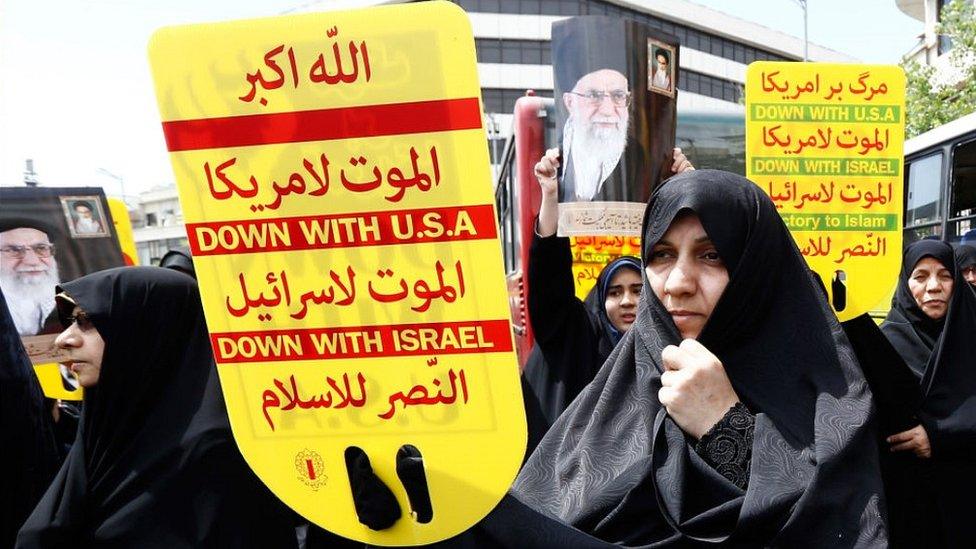
- Published19 March 2020
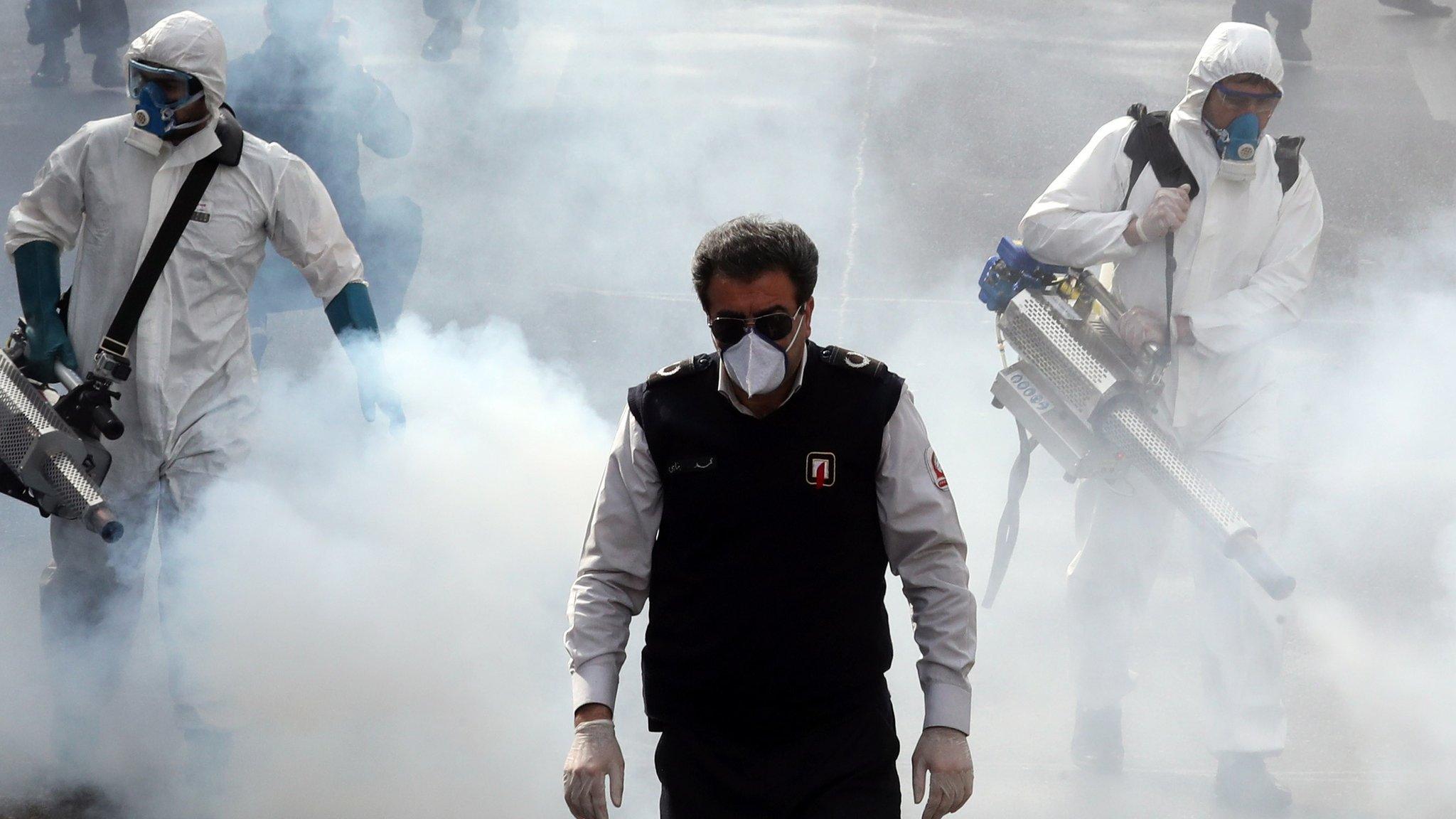
- Published9 December 2019
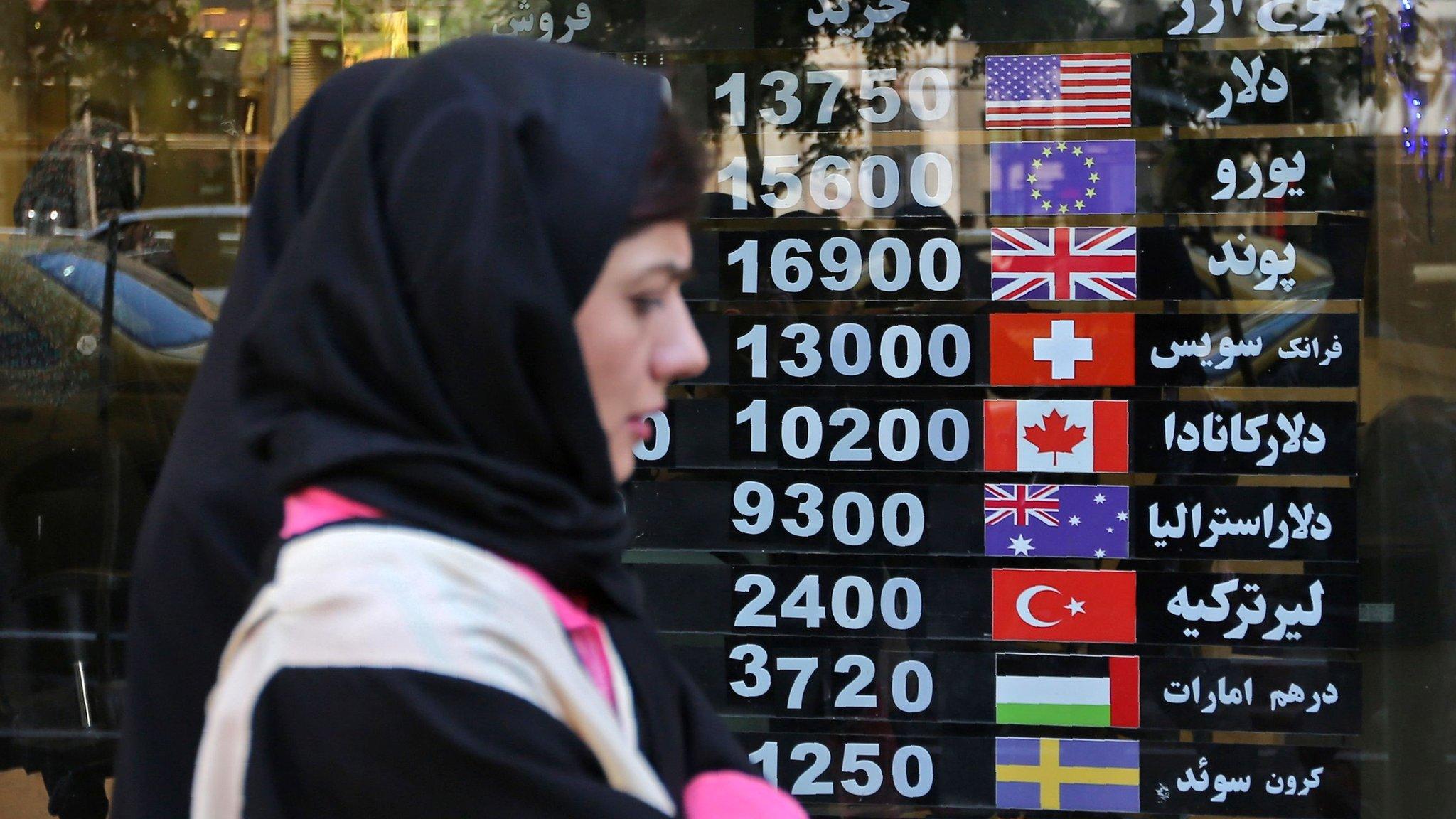
- Published7 August 2019
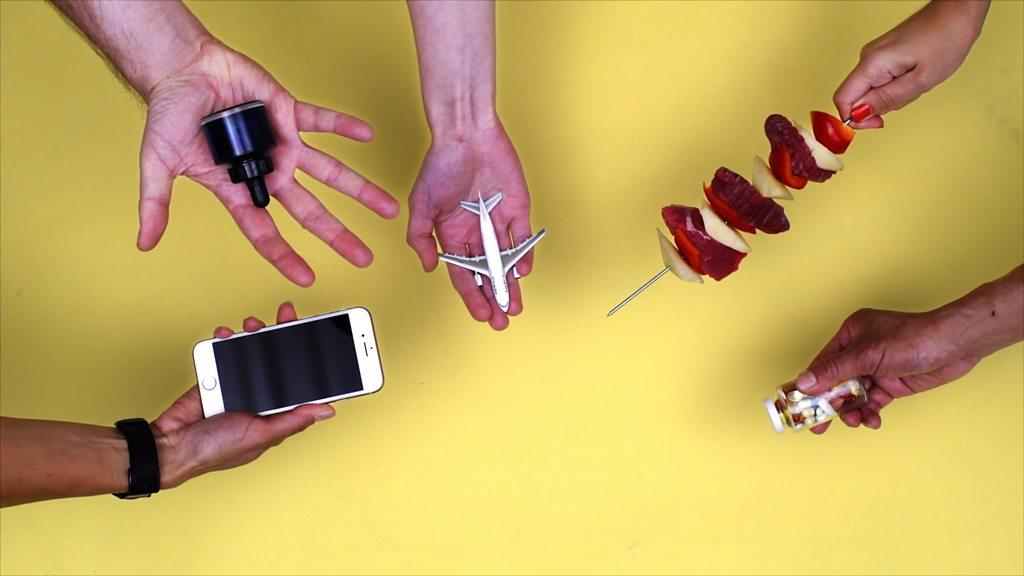
- Published21 May 2018
